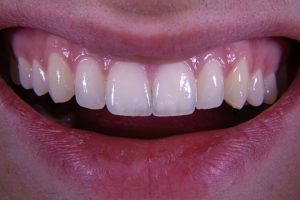One of the most important parts of practicing good oral hygiene is the daily use of a mouth rinse. However, between the anti-plaque, whitening and anti-gingivitis options available on the shelves, the options to choose from can be confusing. All mouth rinses are not the same and deciding on the best one for you depends on more than simply choosing the one that tastes the best. Here are a few tips to keep in mind when choosing a mouth rinse that is right for you.
Cosmetic or Therapeutic?
There are basically two categories of mouth rinse; cosmetic and therapeutic. Cosmetic mouth rinses are designed to simply freshen your breath temporarily. A cosmetic mouth rinse does not contain any agents that will help in the prevention of cavities, prevention of plaque or the prevention of gum disease. A therapeutic mouth rinse is designed to provide protection in one or more of these areas. So when choosing a mouth rinse to simply freshen breath, the only concern is selecting the flavor you prefer. When selecting a therapeutic mouth rinse, you need to choose one that meets your dental needs, for example, do you need additional protection against gingivitis or do you want complete protection or one that does everything as well as whiten teeth.
Fight Plaque and Gingivitis
A mouth rinse designed to fight plaque and/or gingivitis is highly recommended for adults. This type of mouth rinse gives your other dental care habits an extra boost because it kills the bacteria you may miss with brushing and flossing. Tartar buildup causes bacteria to grow and spread on your gum, which leads to gum disease, such as gingivitis. So, if you are trying to prevent gum disease, talk to your dentist about the best anti-plaque and anti-gingivitis mouth rinse for you.
Preventing Cavities
A mouth rinse designed to prevent cavities typically contains fluoride. Fluoride helps to strengthen the enamel on your teeth, making it difficult for acids and sugars to cause cavities and tooth decay. Most people do not need a fluoride-containing mouth rinse, especially if you drink tap water that contains fluoride and brush your teeth with a fluoride toothpaste. Check with your dentist to make sure you need the additional fluoride in a mouth rinse.
When you choose a mouth rinse, be sure to select one that has the ADA seal of approval, which certifies that the manufacturer’s claims are true. If you have sensitive teeth, talk with your dentist about the best type of mouth rinse for sensitive teeth. Your dentist will also be able to suggest the best type of mouth rinse for those with dry mouth, dentures and/or bad breath due to health reasons. The best way to get the most benefits from a mouth rinse is to follow a good oral routine that includes brushing and flossing, followed by a mouth rinse. For more Information Contact Us Now!







